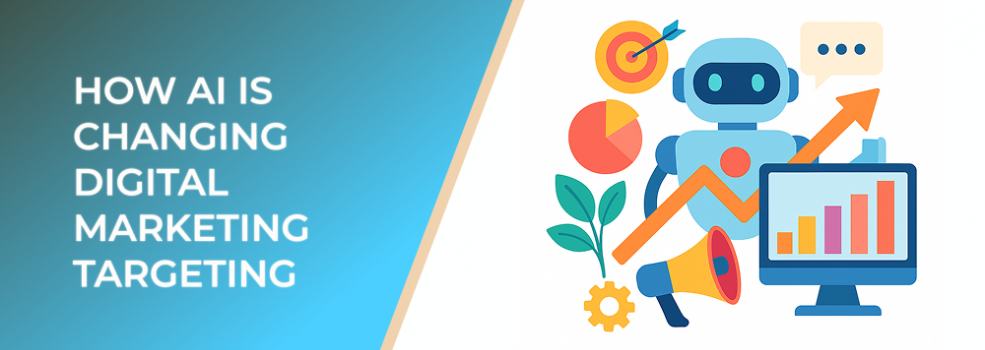Artificial Intelligence (AI) has become one of the most transformative forces in digital marketing. It enables brands to move beyond guesswork and use data-driven insights to reach the right audience with the right message at the right time. As consumers expect increasingly personalized experiences, AI helps marketers deliver precision at scale.
Smarter Audience Segmentation
Traditional segmentation relied on static demographic data such as age, gender, or location. AI enhances this process through behavioral and predictive modeling. By analyzing browsing patterns, purchase histories, and engagement signals, AI systems can dynamically group audiences based on their likelihood to convert.
For instance, AI algorithms can predict when a user is most likely to engage or make a purchase, helping marketers optimize timing and channel choice. According to Salesforce, 76% of marketers using AI report better audience segmentation accuracy compared to those relying on manual methods.
Real-Time Personalization
AI doesn’t just segment audiences better—it enables real-time personalization. Using machine learning, marketers can adjust content and ads instantly based on user interactions. This adaptability ensures that messages remain relevant throughout the customer journey.

AI-driven personalisation delivers up to ~30 % higher engagement compared with basic personalisation
A recent Adobe report found that 80% of consumers are more likely to purchase from brands that provide personalized experiences, and AI tools are central to making that personalization scalable and efficient.
Predictive Targeting and Ad Optimization
One of AI’s biggest advantages is its predictive power. AI analyzes massive datasets to forecast consumer behavior and identify patterns that humans might overlook. These predictions inform smarter ad placements, budget allocations, and creative strategies.
A study by PwC revealed that AI-driven marketing campaigns can improve ROI by up to 30% due to more efficient audience targeting and spend optimization. AI can also detect anomalies in ad performance, automatically pausing underperforming campaigns or reallocating resources to higher-performing segments.
Ethical and Data-Driven Considerations
As AI grows more powerful, ethical data use becomes increasingly important. Consumers are more aware than ever of how their data is collected and applied. Marketers must ensure transparency, consent, and compliance with privacy regulations like GDPR and CCPA to maintain trust.
AI systems should be monitored for bias and inaccuracies that could lead to unfair targeting or exclusion. Responsible AI use ensures that technological advancement benefits both businesses and their customers.
The Future of AI in Digital Targeting
In the coming years, AI will continue to evolve from supportive technology to the central decision-making engine of marketing strategy. The integration of natural language processing, visual recognition, and emotion AI will allow marketers to understand not only what audiences do—but why they do it.

Forecast growth of the AI-in-marketing market from 2025 to 2028
As competition intensifies, businesses that embrace AI-powered targeting early will have a clear advantage. The ability to predict intent, adapt in real-time, and personalize deeply will define the next era of digital marketing success.

